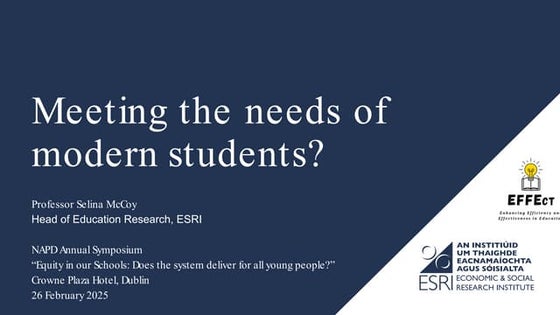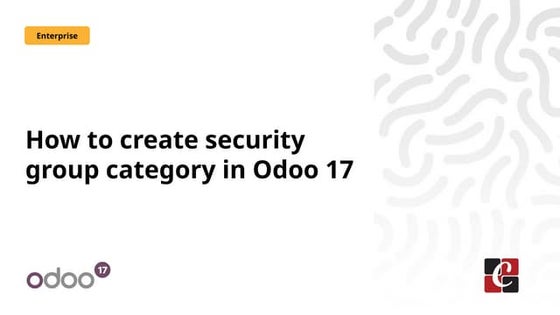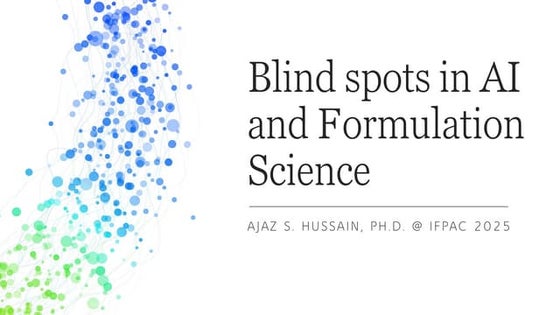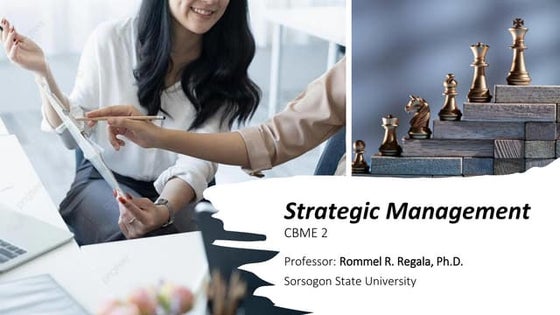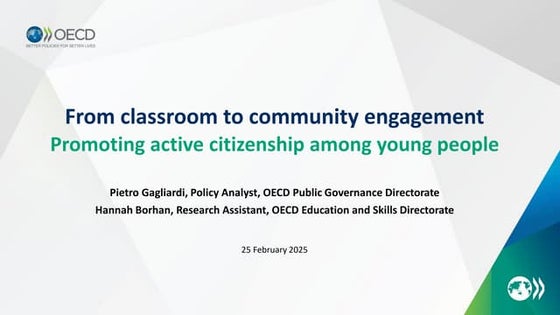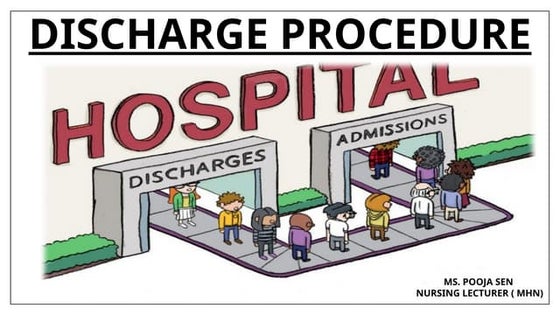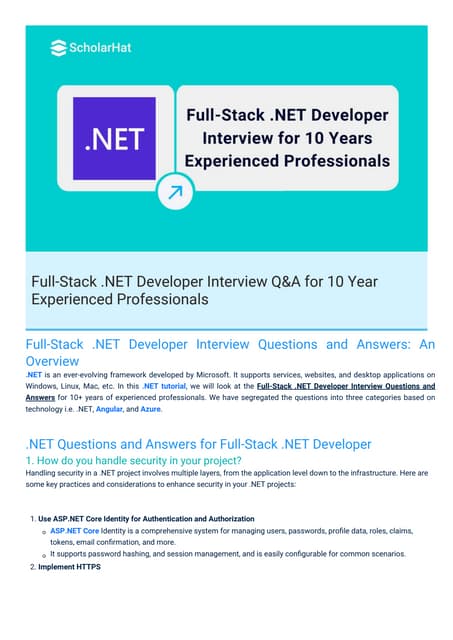Language Symposium 2012: Developing Task-Based Social Networking Projects: The Case of Teaching Russian in the L2 Classroom
- 1. Developing Task-Based Social Networking Projects (Russian L2 Classroom) Liudmila Klimanova The University of Iowa Svetlana Dembovskaya Loyola University Chicago Language Symposium April 14, 2012
- 2. Social Networking Sites (SNSs) ’éŚ Multimodal profiles ’éŚ The ŌĆ£Friends listŌĆØ ’éŚ Interactivity (synchronous, asynchronous) ’éŚ Easy access to friendsŌƤ profiles ’éŚ ŌĆ£Gated communitiesŌĆØ ’éŚ Access to video clips, movies, music, advertisements ’éŚ Access to online groups, forums and communities ’éŚ Daily updates ’éŚ Easy (and free) access from any computer connected to the Internet
- 3. Social Networking and L2 Learning ŌĆó authentic social environments ŌĆó convenient venues for performing L2 identities and experimenting with multiple identities ŌĆó self-authoring (McBride, 2009) ŌĆó online activities ŌĆō less about exchanging information, more about making symbolic gestures (Lam, 2000; 2004) ŌĆó communities of practices and situated learning (Lave & Wenger, 1991; Reinhardt & Zander, 2009) ŌĆó achieve expertise through the process of legitimate peripheral participation ŌĆó new generations of language students ŌĆō ŌĆ×digital nativesŌƤ or neo- millennium student
- 4. Facebook or Target Language SNS? ’éŚ Facebook: ’é¢ More familiar to American students; ’é¢ The layout/functionality of Facebook is clear; hence switching to L2 does not present a big problem; ’é¢ ŌĆ£gated communityŌĆØ a safe social space, all members are classmates; ’é¢ ŌĆ£AmericanŌĆØ environment ’éŚ Target Language SNS ’é¢ Easy access to L1 speakersŌƤ profiles; cultural artifacts, authentic language use; ’é¢ ŌĆ£HomeŌĆØ of L1 virtual communities and groups of common interest ’é¢ ŌĆ£Real worldŌĆØ ’é¢ A cultural phenomenon
- 5. Vkontakte (Russian: ŌĆ×in │”┤Ū▓į│┘▓╣│”│┘ŌƤ)
- 6. Facebooking practices in L1 ’éŚ Preliminary surveyŌĆ” ŌŚ” 32 students, aged 18-20 years old ŌŚ” all but one student have a Facebook account ŌŚ” on average ŌĆō at least once a day to several times a day ’éŚ Motivations behind opening a Facebook account ŌŚ” Practical ’é¢ Stay in contact or connect with old (after high school) or new friends ’é¢ Photo sharing, keeping pictures in one place ŌŚ” Peer pressure ’é¢ Friends moving from Myspace.com ’é¢ For friends who were also joining ŌŚ” Intrinsically motivated ’é¢ For fun, ŌĆ£facebook seemed interestingŌĆØ
- 7. Facebooking practices in L1 What features of Facebook do you use and how often? several once a several once a once a never times a day times a week month day week Instant messaging Status updates Wall postings Private messaging Picture updates Online invitations Apps and games
- 8. Designing Vkontakte Task-based Projects ’éŚ From Bygate & Samuda (2009) (three conditions necessary for a task to be pedagogically beneficial for learning) ŌŚ” Field ŌĆō content (linguistic, conceptual) relevant to L2 learning objectives + the sense of the overall intended outcome and the procedures necessary for achieving this outcome; ŌŚ” Purpose ŌĆō studentsŌƤ perception of a certain instructional activity as being for their learning beyond the activity or task; ŌŚ” Engagement - how far the students are engaged with the goals of the task; ’éŚ Sequencing of Vkontakte projects Observer/Guided Vkontakte user’āĀ Active/independent Vkontakte user
- 9. Projects and Participants ’éŚ Spring 2010 (Project Duration 8 weeks, March ŌĆō April) Second Semester Russian (n=26) Fourth Semester Russian (n=6) Russian speakers (a diverse group of native Russians residing in the US) ’éŚ Spring 2011 (Project Duration 6 weeks, March - April) Second Semester Russian (n=22) Fourth Semester Russian (n=12) Russian speakers (students in two academic institutions in Russia and Ukraine) ’éŚ Spring 2012 (On-going) ’éŚ One instructor; projects included in the course syllabus and constitute a portion of the final grade for the course; Weekly Project assignments: task completion reports, weekly surveys, weekly reflections (in L2 and in English), final reports
- 10. Task-based projects ŌĆō Spring 2010 (Duration ŌĆō 8 weeks) Week Assignments Description Week 1 Registration and Creation of a personal account in unguided Vkontakte Week 2 exploration Week 3 Project 1 Classified ads in Russian; write and post your ad in your profile Week 4 Project 2 VKontakte media, games, applications; Week 5 Project 3 Keypals ŌĆō telecollaboration partnerships Week 6 Project 4 VKontakte groups Week 7 Project 5 Send Email Jim about Vkontakte (jimrichardson@rambler.ru) Week 8 Final report Project Surveys and r├®flexions Week 2-8 Status updates Update your status in your profile page at least 3 times a week
- 11. Task-based projects ŌĆō Spring 2011 (Duration ŌĆō 6 weeks) Week Assignments Description Spring Registration Creation of a personal account in Break Vkontakte Week 1 Keypal Project 1 Write an essay about your keypal Week 2 Keypal Project 2 Describe in writing 3 differences in the lives of American and Russian/Ukrainian students Week 3 Keypal Project 3 Interview your keypal and write a newspaper article. Week 4 Groups Project 4 Join three VKontakte groups and submit reports on each group. Week 5 Groups Project 5 Initiate and participate in a discussion on a group wall Week 6 Groups Project 6 Submit a written summary of the Final report discussion and final reflection.
- 12. StudentsŌƤ perceptions Keypal projects Groups projects 2nd semester students 2nd semester students Personal Difficult Educational Challenging Interesting Intriguing Fun 4th semester students 4th semester students Interesting Rewarding Fun Friendly Patient Inquisitive Polite Personal Difficult Meaningful Formal Time-consuming Unique Condescending (HS) Nervous Intriguing Challenging Fulfilling
- 13. StudentsŌƤ perceptions Keypal projects Groups projects 2nd semester students 2nd semester students Personal Difficult Distant Difficult Educational Challenging Uninteresting Dull Interesting Intriguing Confusing Irrelevant Fun Irrelevant Strange 4th semester students 4th semester students Interesting Rewarding Intimidating Daunting Fun Friendly Overwhelming Prompt Patient Inquisitive Helpful (HS) Unsuccessful Polite Personal Boring Tedious Difficult Meaningful Interactive (HS) Interest-peaking Formal Time-consuming Unique Condescending Frustrating Disconcerting (HS) Difficult One-sided Nervous Intriguing Challenging Fulfilling
- 14. When a task fails to fire: possible explanations (Bygate & Samuda, 2009): ’éŚ Processing of a larger amount of linguistic content; ’éŚ Lack of transparency from studentsŌƤ perspective of the potential learning experience; ’éŚ No clear relationship between processes of a task and an intended outcome (Why are we going this?); ’éŚ A task is not seen by students as contributing to their L2 learning; ŌĆ£how learners are endorsing the activity, and engaging with it in a meaningful wayŌĆØ (p.96) ’éŚ ?? Inadequate preparation for a real world activity by the instructor; ’éŚ Lack of continuous scaffolding during task completion.
- 15. Role of weekly reflection in English ’éŚ Instrumental in helping students re-visit weekly experiences in Vkontakte and identify and accept cultural differences; ’éŚ Motivational in pushing students to identify their strengths and weaknesses and eventually become autonomous learners; ’éŚ Informational for the instructor, revealing studentsŌƤ perceptions of Vkontakte tasks and degrees of individual studentsŌƤ engagement with Vkontakte projects;
- 16. Cultural ŌĆ×discoveriesŌƤ through reflection ’éŚ NicoleŌƤs (2011) oral reflection: ŌĆ£I noticed that she isnŌƤt giving me as much personal information as she could. There were a couple of questions that I asked her, and she didnŌƤt respond to right away. And later she did respond to them. For example, I asked her about her family, and she didnŌƤt respond right away. And I was thinking: maybe this is not the way they communicate with strangers.ŌĆØ
- 17. Motivational reflection ’éŚ AaronŌƤs (2011): ŌĆ£I realized how little conversational Russian I know and how much I still have to learn. I felt limited in my posts as I could not say as much as I would have wanted. I am not going to lie, I used Google translator a lot. I know it is often not accurate and I hope she understood most of the things I said, seemed like she did I think.ŌĆØ
- 18. Informational reflection ’éŚ Students modifying task conditions ŌĆ£We both write a lot in the chat rather than on the wall because it is easier for both to leave a message or two on the go when we are on our phones. There are days where we talk throughout the whole day from our phones.ŌĆØ(Hannah, 2011 )
- 19. Continuous Instructor Scaffolding ’éŚ Linguistic feedback planned by the instructor; ŌŚ” formal vs. informal markers : a mix of čéčŗ-ą▓čŗ, čéčŗ verb endings and ą▓čŗ verb endings in the same sentence or paragraph; ŌŚ” feminine vs. masculine verb endings because Google translate uses only masculine endings by default; ŌŚ” the use of unfamiliar complex structures provided by online translators (very often used inaccurately); ŌŚ” the use of false cognates;
- 20. Continuous InstructorŌƤs Scaffolding ’éŚ Non-linguistic feedback planned by the instructor: ŌŚ” Issues related to maintaining a friendly relationship and commitment on the part of NS participants; ŌŚ” Issues related to time difference management; ŌŚ” Discussion of possible reasons why some students did not get responses to groups postings; ŌŚ” Issues pertaining to the features of Russian Internet culture. ’éŚ Non-linguistic spontaneous scaffolding not planned by the instructor; ŌŚ” StudentŌƤs cultural discoveries; issues brought by students to class for whole class discussions, conflict resolution;
- 21. Evaluation and Grading ’éŚ Two main criteria: (1) successful task completion (e.g., posted the minimum required 3 messages and found 7 differences, posted 3 message + wrote an article with sufficient detail, posted 2 messages to groups and got at least one response) (2) accurate use of target grammar and vocabulary in Russian portions of project reflections ’éŚ Two steps in evaluating student reflections: (1) Instructor collected Russian summaries of the English reflections and corrected (underlined or circled) errors in target structures; (2) Guided by the instructorŌƤs feedback, students corrected their compositions and returned the final version to the instructor. The grade was the average between the first and the second grade.
- 22. Challenges ’éŚ Evaluating/Grading (what constitutes an A)?? ’éŚ Balance between classroom work and project work ’éŚ Collaboration with a paired institution ’éŚ Technical issues ’éŚ Continuous teacher presence online ’éŚ Timely scaffolding to prevent negative experiences
- 23. Literature Lam, W.S.A. (2004). Second language socialization in a bilingual chat room: global and local considerations. Lave, J. & Wenger, E. (1991). Situated learning: Legitimate peripheral participation. McBride, K. (2009). Social-networking sites in foreign language classes: Opportunities for Re-creation. Reinhardt & Zander (2009). Social networking in an intensive English program. Bygate, M. & Samuda, V. (2009). Creating pressure in task pedagogy: The joint roles of Field, Purpose, and Engagement within the Interactional Approach.
- 25. Informational reflection ’éŚ Students modifying task conditions ŌĆ£It was a little difficult choosing a topic that she was interested in for the interview. I asked her whether or not she was interested in discussing politics, movies, or music. Victoria told me that while she does not like Politics she always stays up to date on the news in Ukraine and worldwide. We ended up just talking about a variety of topics. I think that while we did not stay on one topic this week, we had a great flow to our
- 26. Informational reflection ’éŚ Student Engagement ŌĆ£The most I enjoyed this week was exploring VK. I spent hours exploring my friendŌƤs profile, by going through pages and pages on her wallŌĆØ (Steve, 2011)
- 27. Informational reflection ’éŚ Students perception of task importance ŌĆ£The only recommendation that I have is to make sure the communication between the partners does not turn into ŌĆ£20 questions.ŌĆØ At some parts of the projects my partner would purely just answer my questions without expanding on her answers.ŌĆØ (Erin,2011)
- 28. Any L2 learning gains? Cultural ŌĆ£momentsŌĆØ ’éŚ Knowledge of L2 online culture (s) and its conventions: ŌŚ” VK is less legitimate at times (they ask for phones numbers to verify things)ŌĆ” less restriction on the content of pages ŌĆō a huge cultural difference ŌĆō maybe it is an extension of culture?? ŌŚ” Virtual groups are closed/ or by invitation only. ŌŚ” VK seems to be used to connect with friends but also to make new virtual friends. ŌŚ” Russians are way more open with what they post in groups, whereas in Facebook you have to make sure itŌĆÖs appropriate. ŌŚ” People seemed to be more formal and the groups had rules (!). People were up front with who they were and did not ŌĆ£generalizeŌĆØ their profiles. ŌŚ” People are more active in group discussions. ŌŚ” Most of the users in the VK groups are all women. Most of the
- 29. Any L2 learning gains? Cultural ŌĆ£momentsŌĆØ ŌĆō continued ’éŚ L2 social networking pragmatics ŌŚ” VK helped me understand register ŌĆō formal and informal Russian ŌĆ£at workŌĆØ ŌŚ” Russian Internet culture ŌĆō smileys - : -) (FB) to )) ’éŚ A glimpse into Russian identities: ŌŚ” VK had more beautiful people on itŌĆ” Russians put up their one and best picture on their profile. Maybe they are more attractive. ŌŚ” Russians put up glamorous headshots of themselves. ŌŚ” ŌĆ£free (!) access to music and videosŌĆØ ŌŚ” There is a great deal of national pride displayed in VKŌĆ” . This is one major difference I noticed. I believe this is simply a refection of life in Europe.
- 30. Trying new thingsŌĆ” ’éŚDeveloping multimedia literacy During this project did you do anything in VK that you normally do not do in FB? ŌŚ” Trying new CMC and SNS functions: ’é¢ Talking [via a SNS] to people I donŌĆÖt know ’é¢ Making posts on the groupŌĆÖs wall; posting regular status updates; ’é¢ Looking through strangersŌĆÖ profiles ŌĆō I actively looked up groups and ads and talked to strangers ’é¢ Typing Cyrillic on the computer ’é¢ Improving my L2 readings skills by reading posts and profiles in VK ŌŚ” Is addiction to SNS apps bad? ’é¢ I watched many more than the 3 posted videos, probably about 2 hours worth of Russian videos just in that night ŌĆō (artifacts of culture); ’é¢ The VK project resulted in an unstoppable addition to a
- 31. Trying new thingsŌĆ” cont. ’éŚ Becoming aware of the social contexts in SNSs: ’é¢ Learning to be a more observant language learner: ’é¢ It was really cool to be able to see how the Russian youth interacted. ’é¢ Negotiating oneŌƤs power and place in SNS environments: ’é¢ Talking to a NS made me concentrate on my errors and mistakes. I was conscious of my grammar so that they [NSs] can understand me. ’é¢ I actually started discussions on the groups I joined! (playing a ŌĆ×social gameŌƤ on equal terms with NSs) ’é¢ Experimenting with oneŌƤs L2 identity
- 32. Status updates
- 33. Analysis of status updates An of average amount of previously studied and not studied vocabulary by project week (N = 317)
- 34. Analysis of status updates Linguistic and non-linguistic expressivity - encoding emotion in a status update % status updates ling/non-linguistic non-linguistic linguistic 0 10 20 30 40 50 60 70





























![Trying new thingsŌĆ”
’éŚDeveloping multimedia literacy
During this project did you do anything in VK that you
normally
do not do in FB?
ŌŚ” Trying new CMC and SNS functions:
’é¢ Talking [via a SNS] to people I donŌĆÖt know
’é¢ Making posts on the groupŌĆÖs wall; posting regular status
updates;
’é¢ Looking through strangersŌĆÖ profiles ŌĆō I actively looked up
groups and ads and talked to strangers
’é¢ Typing Cyrillic on the computer
’é¢ Improving my L2 readings skills by reading posts and profiles
in VK
ŌŚ” Is addiction to SNS apps bad?
’é¢ I watched many more than the 3 posted videos, probably
about 2 hours worth of Russian videos just in that night ŌĆō
(artifacts of culture);
’é¢ The VK project resulted in an unstoppable addition to a](https://image.slidesharecdn.com/april14languagesymposiumpresentation-120423181819-phpapp02/85/Language-Symposium-2012-Developing-Task-Based-Social-Networking-Projects-The-Case-of-Teaching-Russian-in-the-L2-Classroom-30-320.jpg)
![Trying new thingsŌĆ” cont.
’éŚ Becoming aware of the social contexts in
SNSs:
’é¢ Learning to be a more observant language learner:
’é¢ It was really cool to be able to see how the Russian
youth interacted.
’é¢ Negotiating oneŌƤs power and place in SNS
environments:
’é¢ Talking to a NS made me concentrate on my errors and
mistakes. I was conscious of my grammar so that they
[NSs] can understand me.
’é¢ I actually started discussions on the groups I joined!
(playing a ŌĆ×social gameŌƤ on equal terms with NSs)
’é¢ Experimenting with oneŌƤs L2 identity](https://image.slidesharecdn.com/april14languagesymposiumpresentation-120423181819-phpapp02/85/Language-Symposium-2012-Developing-Task-Based-Social-Networking-Projects-The-Case-of-Teaching-Russian-in-the-L2-Classroom-31-320.jpg)

































